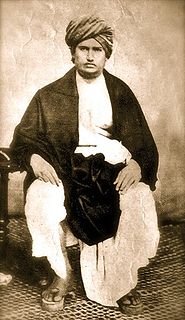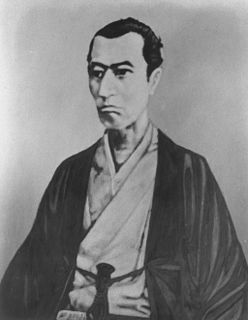A Quote by Sun Tzu
If a general shows confidence in his men but always insists on his orders being obeyed, the gain will be mutual.
Related Quotes
Stupidity is a factor to be reckoned with in human affairs. The true leader always expects to encounter it, and prepares to endure it patiently so long as it is normal stupidity. He knows that his ideas will be distorted, his orders carelessly executed; and that there will be jealousy among his assistants. He takes these inevitable phenomena into account, and instead of attempting to find men without faults, who are non-existent, he tries to make use of the best men at his disposal - as they are, and not as they ought to be.
Man is appealed to be guided in his acts, not merely by love, which is always personal, or at best tribal, but by his perception of his oneness with each human being. In the practice of mutual aid, which we can re-trace to the earliest beginnings of evolution, we thus find the positive and undoubted origin of our ethical conceptions; and we can affirm that in the ethical progress of man, mutual support- not mutual struggle- has had the leading part.
The world is full of men who want to be right, when actually the secret of a man's strength and his pathway to true honor is his ability to admit fault when he has failed. God wants to fill the church with men who can say they are wrong when THEY ARE WRONG. A man who is willing to humble himself before God and his family and say: "I was wrong." will find that his family has all the confidence in the world in him and will much more readily follow him. If he stubbornly refuses to repent or admit he was wrong, their confidence in him and in his leadership erodes.
The man who will go where his colors go, without asking, who will fight a phantom foe in the jungle and mountain range, without counting, and who will suffer and die in the midst of incredible hardship, without complaint, is still what he has always been, from Imperial Rome to sceptered Britain to democratic America. He is the stuff of which legions are made. His pride is in his colors and his regiment, his training hard and thorough and coldly realistic, to fit him for what he must face and his obedience is to his orders. He has been called United States Marine.
If a general and his men fear death and are apprehensive over possible defeat, then they will unavoidably suffer defeat and death. But if they make up their minds, from the general down to the last footsoldier, not to think of living but only of standing in one place and facing death together, then, though they may have no other thought than meeting death, they will instead hold on to life and gain victory.
Just as man's physical existence was liberated when he grasped that 'nature, to be commanded, must be obeyed', so his consciousness will be liberated when grasps that nature, to be apprehended, must be obeyed - that the rules of cognition must be derived from the nature of existence and the nature, the identity, of his cognitive faculty.







































